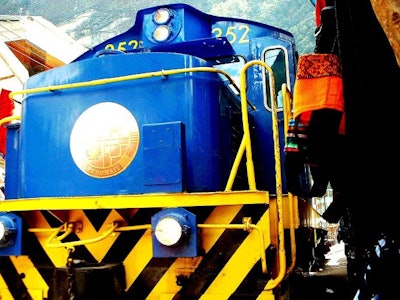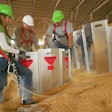
As summer wound down and the Feed & Grain staff and contributors began working on this issue, it became clear that one theme would dominate the pages: rail issues. The USDA is projecting a record-breaking corn crop for the second year in a row at 14 billion bushels, and a nearly record-breaking soybean crop of 3.82 billion bushels. Under any other circumstances this would be welcome news for grain handlers, but this year’s logistic nightmare in the Western Corn Belt is causing more ulcers than reason to jump for joy.
Rail problems started for the grain industry nearly a year ago as oil production in North Dakota alone ramped up to more than 1 million barrels a day (compared to 400,000 barrels in 2009). Oil train after oil train shipped to the Bakken oil fields, while grain car orders went unfulfilled — putting shuttle loading facilities behind by hundreds of railcars and months late on contract deliveries.
There simply aren’t enough resources for the two industries to operate with the infrastructure and equipment available today. Railroad companies have promised to invest in additional rail lines and engines, but the pace of improvement is too slow to have an impact this year.
Meanwhile, demand for cars sent their price skyrocketing, and with corn around 3.50/bushel, most companies will lose money on shipping unless they ordered unit trains months ago.
In response to what will likely be the source of many headaches in the coming months, Feed & Grain crafted this issue to help navigate these troubling times.
Start with our Special Report“Temporary Storage: Permanent Solution.”If you can’t get your inventory to market, then temporary storage is a must. There are a variety of solutions to take the place of ground piles, yet don’t carry the price tag of permanent storage structures.
Diana Klemme’sMerchandisers’ Corneruses a fictional country elevator in the Western Corn Belt to demonstrate how the delayed price inventory strategy works.
In Legal Q&A,“Avoiding a Bumper Harvest Train Wreck,”Todd Langel of Faegre Baker Daniels shares what companies can do if they’re unable to deliver grain to a party they’ve contracted with. Companies are covered under the Uniform Commercial Code when circumstances give rise to uncertainty — and today’s transportation woes certainly fit the bill.
Throughout history grain handlers have tackled issues equally as challenging as this one, and 2014’s rail problems are sure to be no different. Just be prepared for a few bumps along the way!






















